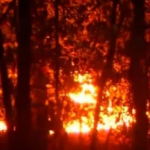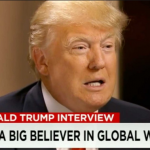Our grandchildren will know
The more certain global warming looks,
the less our generation shows interest.
Our grandchildren will know for sure whether CO2 has caused significant global warming. They will find out whether it has damaged the Rockies snowcap enough to turn the Southwest back into a desert, melted Greenland enough to flood New York and Oakland, and pushed America’s Corn Belt north enough so it’s in Canada.
American policy makers don’t know today. In January, 18 scientists sent a letter to Congress arguing that climate change data are stronger than ever. In February, 36 scientists wrote to Congress saying that the threats from climate change “may well be small to negligible.”
Last year, searching for a disinterested view, I came across a “betting shop” where anyone could wager money on global warming:
“In 2007 Professor Scott Armstrong of The Wharton School claimed that there was no scientific basis to global warming predictions. He offered to bet Al Gore $10,000 that his no-change prediction for average temperature over the next decade would be more accurate than the global warming forecast that Gore was popularizing.”
 A bet. I figure punters have an incentive to get the answer right, and that the wisdom of crowds might give us an accurate prediction. Today I checked back with the odds-makers. Although a year ago more money was on Armstrong’s side of the bet, by this January his no-change prediction had virtually no supporters. The bookmakers closed the wager; Gore had won.
A bet. I figure punters have an incentive to get the answer right, and that the wisdom of crowds might give us an accurate prediction. Today I checked back with the odds-makers. Although a year ago more money was on Armstrong’s side of the bet, by this January his no-change prediction had virtually no supporters. The bookmakers closed the wager; Gore had won.
But the stronger the evidence for warming becomes, the less Congress is interested, the fewer Google searches in the US for “climate change,” and lower it polls among citizens’ worries.
If temperatures are rising, as this futures market suggests, and the country is not going to fight it, as Congress insists, it seems likely my generation can’t escape the blame for drought, flooding, disruptions to farming, and the other predicted consequences.
What I don’t want our grandkids to blame us for is settling them in the jobs, tax jurisdictions, homes, lifestyles, and expectations that are most vulnerable. If we can’t bequeath them our world, we must at least help them adapt their lives to the different one that may follow.



